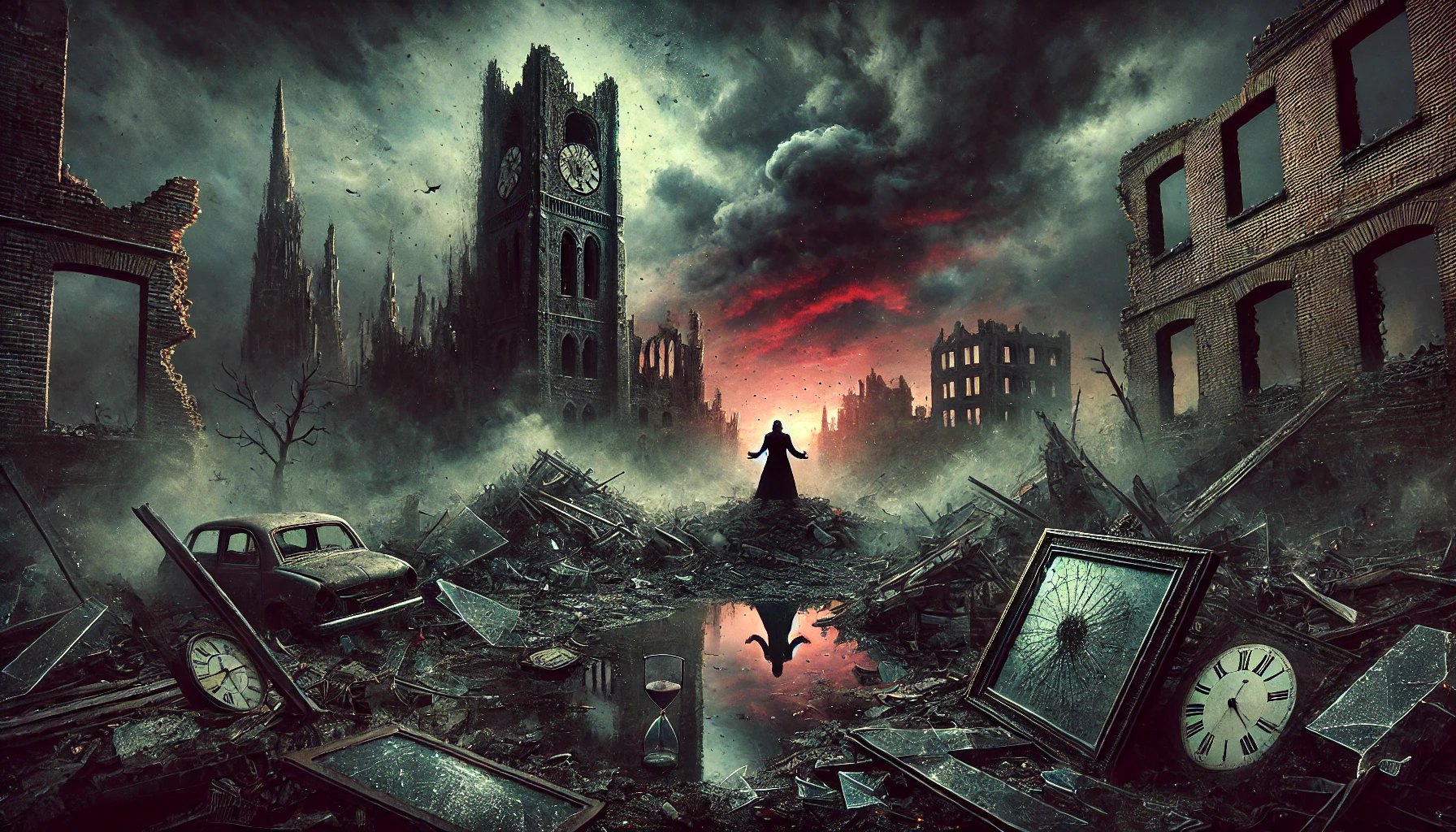Marilyn Manson’s “Nod if You Understand” is a visceral and incendiary exploration of destruction, guilt, and defiance. It channels a profound sense of chaos and nihilism while confronting themes of accountability and shame. The song seems to function as a manifesto of existential rage and rebellion against societal norms and moral frameworks, expressed through its vivid, apocalyptic imagery and confrontational tone.
Key Themes and Analysis
- Destruction as a Catalyst for Truth: The recurring desire for “destruction” and “towers to crumble” serves as a metaphor for dismantling the structures of an oppressive or disillusioning reality. Manson’s provocative imagery—such as mothers tossing babies from windows—evokes horror, but not necessarily for shock value alone. It symbolizes the collapse of innocence and the harshness of a world too grim to endure. The repeated question, “Who would want to wake up if this is their world?” speaks to existential despair and the craving for radical change, no matter how violent or unsettling.
- Pain as a Language: The pre-chorus, where pain is described as a language, implies that suffering has been a formative force in the narrator’s life. Instead of seeking forgiveness or redemption, the speaker views their own response—manifested as destruction and rebellion—as inevitable, even justified. This refusal to repent or conform challenges the expectation of contrition and instead embraces pain as a source of power.
- Shame and Projection: The chorus shifts the focus outward, accusing others of avoiding accountability. The repetition of “You’re the only one who should be ashamed” suggests that society at large bears guilt for the conditions it perpetuates. This could point to hypocrisy, moral decay, or complicity in systemic harm. The chant of “Shame!” reinforces the collective responsibility, creating an almost ritualistic moment of indictment.
- Identity as a Bomb: In the second verse, the narrator proclaims themselves a “bomb in your building,” a destructive force that cannot be undone (“a mistake that you can’t unmake”). This metaphor underscores both the inevitability of the destruction they bring and their role as a disruptor. It’s a declaration of both empowerment and chaos, aligning with the song’s overall themes of rebellion and inevitability.
- Slaughterhouse Imagery: The bridge introduces the image of “washing the floors of the slaughterhouse with buckets of dirty water,” a grotesque but potent metaphor for futile attempts to clean or sanitize a world steeped in violence and corruption. It suggests that the foundations of the system are irreparably stained, further justifying the narrator’s destructive philosophy.
Emotional Tone and Delivery
The song’s relentless, dark energy mirrors the inner turmoil and outrage of someone deeply disillusioned with their environment. The repetition of lines like “I won’t repent” and “You’re the only one who should be ashamed” drives home the defiant rejection of societal expectations and the projection of guilt onto those who created or sustained the broken system. The chant-like structure and guttural delivery create an almost cathartic release of pent-up emotion.
Broader Interpretation
While the lyrics are steeped in darkness and intensity, they could also be interpreted as a critique of societal apathy and a call to confront uncomfortable truths. The narrator, while embodying destruction, also acts as a mirror, forcing others to “look at [themselves] for someone to blame.” This dynamic makes the song both deeply personal and broadly reflective.
In essence, “Nod if You Understand” is not merely a nihilistic anthem; it’s a meditation on the interplay between personal pain, societal guilt, and the desire for transformative upheaval. It challenges the listener to grapple with their own role in a world teetering on the brink.
